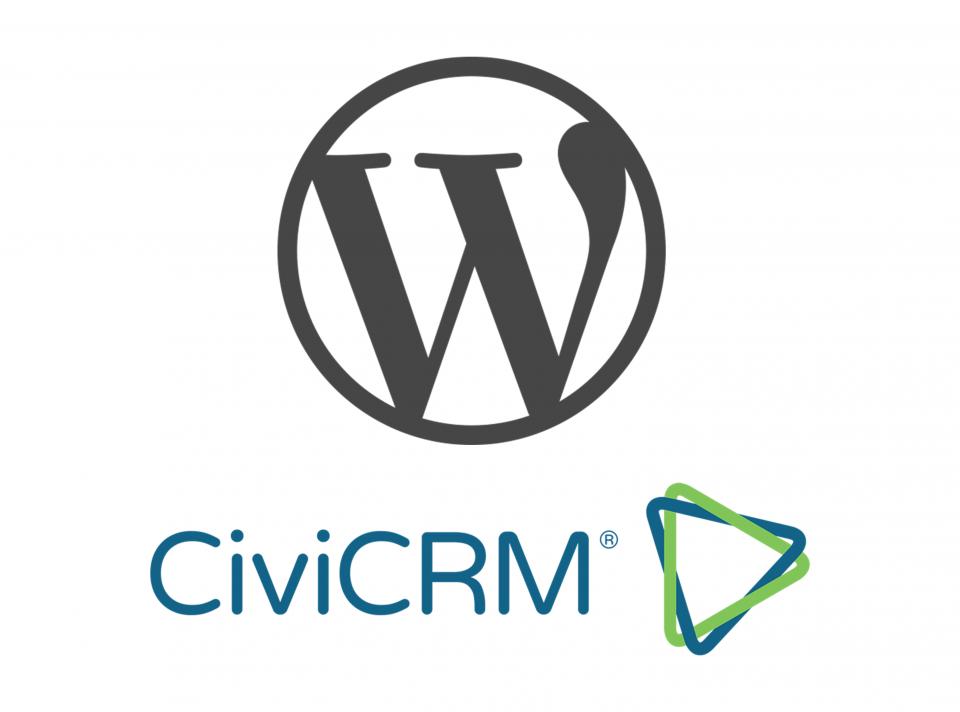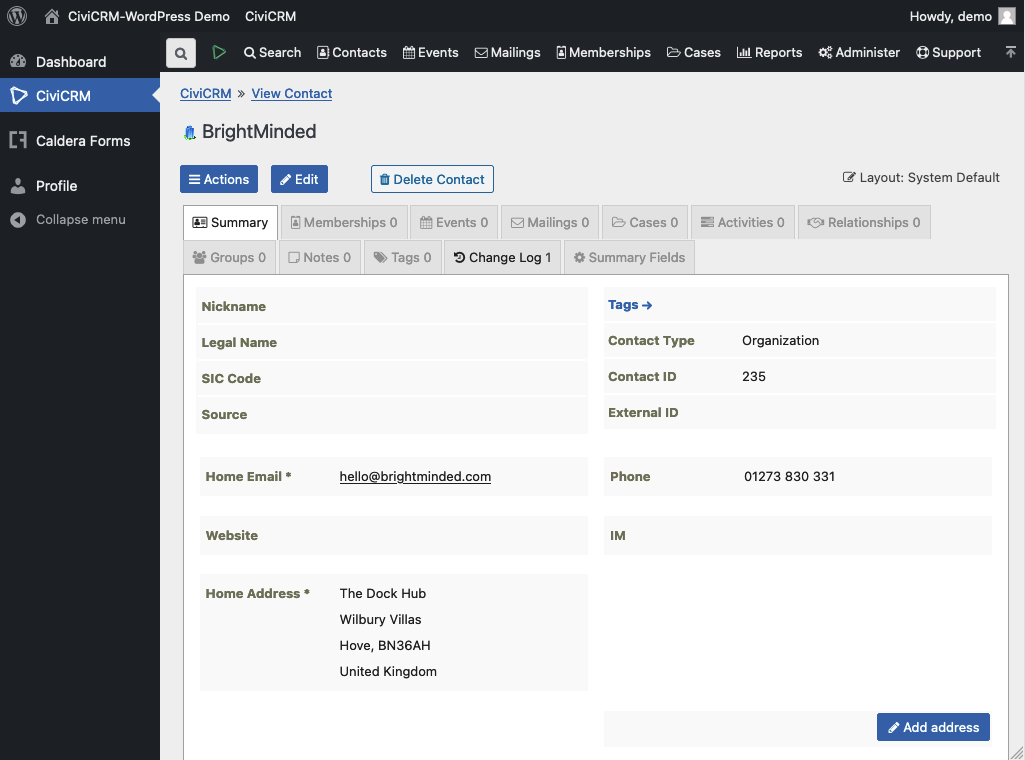Why you should consider WordPress for your next CiviCRM project
CiviCRM is a CRM (Client Relationship Management software) designed specifically for non-profits and membership organisations. At BrightMinded we think that CiviCRM is a great solution for many organisations in this space, and an excellent alternative to more expensive enterprise solutions.

Index
- Introduction
- Why do you need a CMS for your CRM?
- The importance of a quality CMS
- What if you just want a CRM?
- Conclusion
TL;DR summary:
- CiviCRM works with multiple CMSs: it integrates with Drupal, Joomla, or WordPress, giving flexibility depending on your organisation’s needs.
- CMS choice matters for usability: content teams spend most of their time in the CMS, so a user-friendly system like WordPress can improve workflow and satisfaction.
- Shared logins and integration: connecting CiviCRM with a CMS allows single sign-on, embedded forms, and easier display of member information on your site.
- WordPress is increasingly viable: modern tools like Bedrock improve reliability and security, making WordPress a strong alternative to Drupal for CiviCRM.
- Future-proofing: a standalone CiviCRM version is in development, but WordPress remains a flexible, supported option with full API access for integrations.
Introduction
CiviCRM is unusual in that it is designed to fit within the content management system of your choice: either Drupal, Joomla or WordPress. Drupal has long been favoured by most of the CiviCRM community, but following the painful release of Drupal 8 and 9, many organisations are reconsidering whether Drupal is right for their needs. At BrightMinded we are big proponents of WordPress, and believe WordPress should receive more attention in the CiviCRM space.
Why do you need a CMS for your CRM?
For those who are new to CiviCRM the need to choose a CMS can feel a little odd and leads many users to just jump towards the standard choice, Drupal. This is perfectly reasonable, but can end up overlooking the benefits of why these tools are designed to closely integrate:
- User logins are shared between CiviCRM and the CMS, allowing a consistent experience for site administrators.
- Membership organisations often need to show member details on public pages of the site. CiviCRM makes this easy.
- If your website offers a public or member login, then the cost of integration between the website and CRM is reduced.
- CiviCRM allows for certain forms to be embedded on the public website, feeding directly into the CRM with no development work. Examples are payment forms, donation forms, and event booking forms.
The importance of a quality CMS
The content teams at many organisations will spend significant time in the content management system – writing blogs, editing content and generally updating pages. For this reason, it’s important that a subpar CMS isn’t chosen in the search for the perfect CRM.
In our experience content-editors often report Drupal as being clunky and difficult to use. It does come with some extra functionality that isn’t available in WordPress or Joomla, but organisations need to consider whether this extra power is really needed and whether there are ways to achieve it within an alternative solution.
On the other hand, WordPress generally receives very positive feedback from those who use it day-in-day-out. Some people may be put off by the new block editor, but if this is the case, the classic editor is still supported and works great with solutions such as ACF.

Of the top CMS’s on the market, Joomla has the smallest market share, and we wouldn’t recommend it as a new solution unless it’s already in use within an organisation.
What if you just want a CRM?
Many organisations might want a standalone CiviCRM instance, for example, because they already have a public website that they don’t want to connect to their CRM. Organisations might want a standalone CRM due to security concerns with mixing their public and internal systems. In these cases, the choice of CMS becomes a slightly different question.
In these cases, WordPress might still make sense. Several recent WordPress developments make WordPress an increasingly appealing choice for system administrators. New wordpress functionality, and tools like Bedrock, allow the hosting and management of WordPress to be increasingly sophisticated which can improve the reliability and security of your WordPress CiviCRM installation.
If you’re looking to migrate to CiviCRM over the longer term, you might also be interested in the recent news that a standalone version of CiviCRM is under development. This will allow CiviCRM to be used without it being installed within a host CMS and is likely to be a more lightweight solution for organisations that don’t need a CMS.
Whichever option you choose, you will have access to CiviCRM’s powerful API. This can allow your development team to connect arbitrary systems to your CRM database. For example, you could use the API to pull data into your public website, even if you install CiviCRM into a standalone CMS.
Conclusion
At BrightMinded we’re big fans of CiviCRM and think it’s a great solution for many organisations. However, we also think the community is too Drupal-centric, which unfortunately overlooks a lot of the advantages of using WordPress as the host CMS. We’re going to keep pushing for the continued development of the WordPress and standalone versions of CiviCRM, which we see as a large part of the future of CiviCRM.
Are you looking for an expert to help with your CiviCRM project?
We are experts in the design and development of WordPress and CiviCRM projects.
Email us directly or call us 01273 830331


